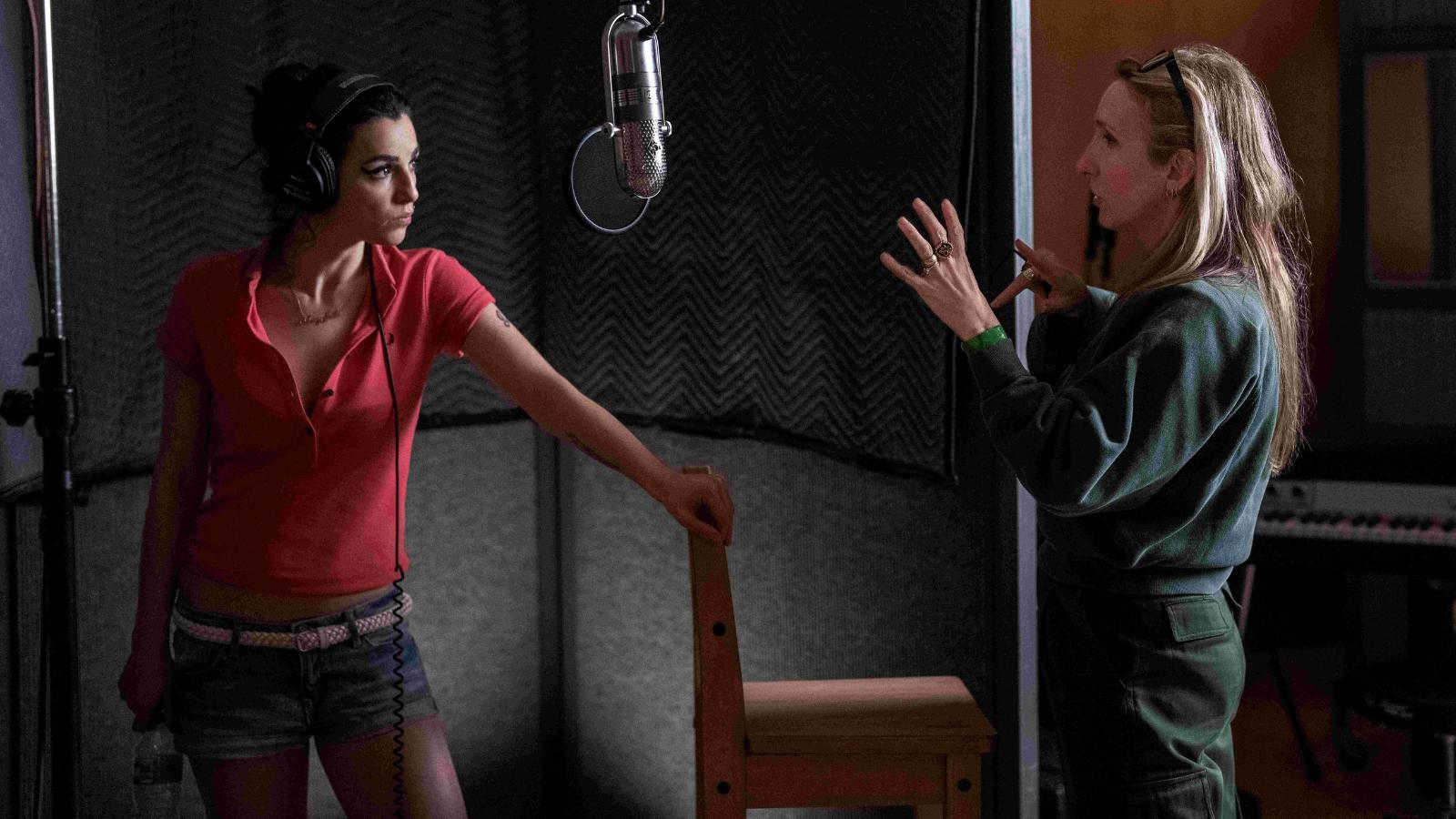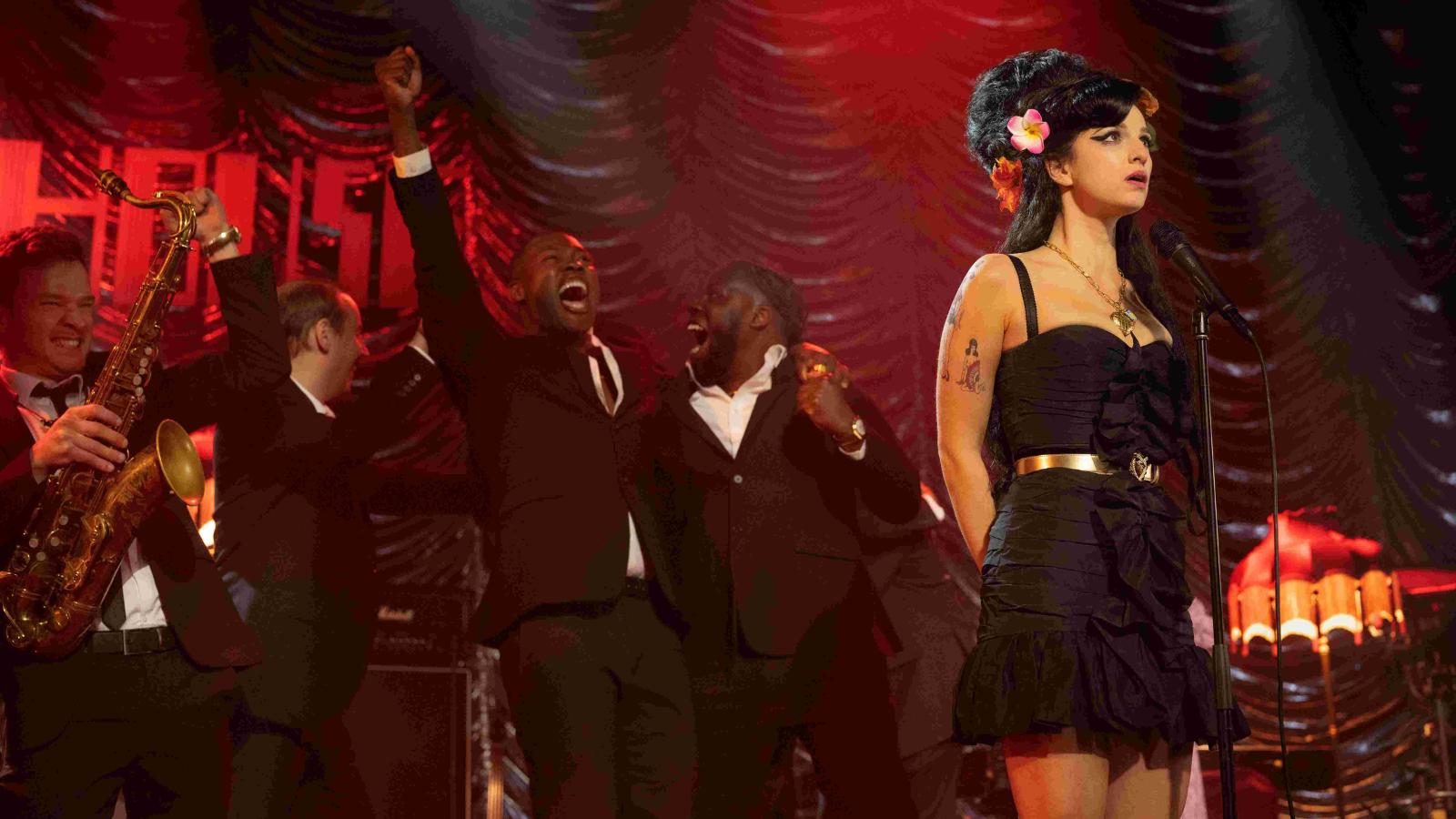The New Amy Winehouse Biopic Is A Disservice To The Late Singer’s Legacy
While Back To Black showcases glimpses of the late singer’s musical genius, it also puts her demons out on full display for the world to scrutinize.

Courtesy of Universal Pictures International
Courtesy of Universal Pictures International
Amy Winehouse was a musical legend who was gone too soon.
Her soulful voice and deeply personal lyrics made her an icon of the neo-soul and jazz revival in the early 2000s –– establishing her as one of the most influential musicians of the 21st century. Though her tragic passing in 2011 left a massive void in the music industry, Winehouse will forever be remembered as one of the musical greats of our time. With an impressive legacy such as hers, it felt inevitable that her career –– and life –– would continue to be immortalized in other forms of media.
In 2015, it was the release of Amy, an Academy-Award and Grammy-winning documentary from A24 that already gave justice to her life, legacy, and immense contributions to the realm of music.
Yet with how the Hollywood machine usually works, it was still quite inevitable that they were going to try their hand at profiting off a highly dramatized version of the late singer’s life story. Now, we have Sam Taylor-Johnson-directed biopic, Back To Black. While the aforementioned documentary shined a light on Winehouse’s significance in music, this film is pale by comparison — painting an unforgiving image of the singer that feels more exploitative than it is honorary.

Courtesy of Universal Pictures International
To the film’s credit, Taylor-Johnson ensured that the role of Winehouse was well-casted, inviting up-and-coming actress Marisa Abela to portray the renowned musical icon. Abela defied all odds to prove naysayers wrong by giving her performance as Winehouse as much depth and nuance as it could – with her commitment to the performance evident in her accuracy in capturing the singer’s mannerisms (both physically and vocally), while also capturing Winehouse’s signature charm and humor that made her so beloved by her peers in the industry.
Abela’s performance truly shined as Winehouse in the early parts of the film, given the fruitful result of her vocal training efforts that allowed her to emulate the jazzy crooning style of the “Rehab” hitmaker as she sang. It’s no easy feat to replicate the talents of someone such as Winehouse, but Abela was able to do so –– to the point that some scenes had her looking like a spitting image of the late singer.
But sadly, as the film began to go off track halfway into the story –– Abela’s performance could only do so little to steer us away from the trainwreck that was about to unfold as the film progressed.

Courtesy of Universal Pictures International
It’s already public knowledge that the jazz-neo-soul singer-songwriter dealt with alcohol abuse during the peak of her fame, but the manner in which Back To Black takes a queue or two from the paparazzi who relentlessly trailed Winehouse throughout her life feels cruel and insensitive to the late singer’s legacy.
Rather than acting as a celebration of her life and accomplishments, the film forces its audience to relive and endure the singer’s many demons. To put her flaws and vices out on full display in such a tasteless and uncouth manner is absolutely unjustified, with several aspects of Matt Greenhalgh’s screenplay particularly sensationalized further away from the truth — only placed in the story for the sake of mere entertainment purposes.
If you’re someone who has followed Winehouse’s music and legacy over the years, you could easily note which portions of the film feel ripped straight from her Wikipedia page, or worse, from the tabloid pages.

Courtesy of Universal Pictures International
As the story progresses on, the film finds itself firmly anchored on the premise that Winehouse is a “tortured soul” who turned to alcohol as a coping mechanism for her loneliness. By presenting her as just that, it strips her away of any agency –– almost as if it pities and puts her down rather than empathizing with her and her struggles. It’s almost horrifying to witness, seeing as it constantly frames the narrative as if Winehouse was ultimately the true villain and saboteur of her own story.
Although there are moments that aim to highlight significant milestones in Winehouse’s career (e.g. Her 2007 Glastonbury set), Taylor-Johnson and Greenhalgh reframe the moment as a bizarre performance that exaggerated her inebriated state on stage rather than appreciating just how impressive her set was.
It’s absolutely reductive and almost misogynistic to forgo everything else that Winehouse achieved in her career by her own merits, such as her excitement at reaching #1 on both the US & UK albums chart and her creative partnership with producer and close friend Mark Ronson. Such moments were entirely absent from the film and were sacrificed in favor of poorly made montages that focus on her embarrassing moments in the public eye. Because as offensive as these are to her memory –– it’s also just lazy and shoddy filmmaking at best.

Courtesy of Universal Pictures International
As a film, Back To Black does little to reinvent the wheel of the biopic genre –– yet it also doesn’t necessarily function as a great one at that too. It does little to champion its subject, rather focusing on the sordid details of Winehouse’s life resulting in a salacious, if not shallow, retelling of her life story.
It stands as a huge slap in the face to Winehouse and her legacy, which is why if only Marisa Abela’s performance wasn’t as compelling as it was, this movie could have become downright unforgivable. If only the film could have gone in a different direction in terms of storytelling, Back To Black would have succeeded if it researched or focused more on Winehouse’s achievements, creative process, and influences –– rather than its final result of being a bizarre highlight reel of the musical icon’s lowest points in her life.
To those unfamiliar with Amy Winehouse, I can see why this film might draw your attention at first glance –– but I reiterate that it’s best to take your chances learning more about her from elsewhere.
Back To Black will be distributed internationally by Universal Pictures International, and premieres in the Philippines this May 15, 2024, exclusively in Ayala Malls Cinemas nationwide.
Reserve your tickets via SureSeats here.
Listen to the soundtrack to Back To Black below:
